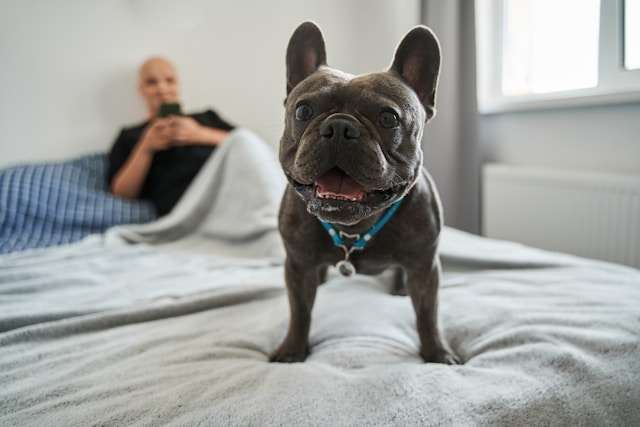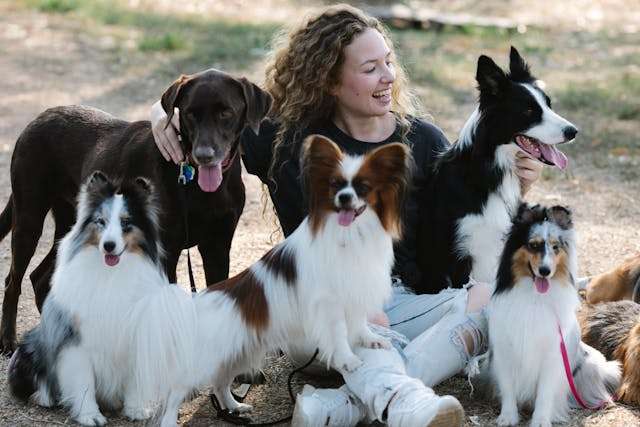Are French Bulldogs Good Dogs? Discover 10 Reasons Why
Introduction

French Bulldogs have taken the pet world by storm with their adorable looks and charming personalities. As a popular breed among pet owners, they often raise the question: Are French Bulldogs good dogs? This article will explore the various aspects of French Bulldogs, from their history and traits to the pros and cons of owning one. Ultimately, it would be best to understand whether this breed fits your lifestyle well.
Table of Contents

Understanding French Bulldogs
History and Origin
Are French Bulldogs good dogs? French bulldogs, often referred to as Frenchies, have a rich history dating back to the 1800s in England. Originally bred as a smaller version of the English Bulldog, they were companions to lace workers in Nottingham.
When the Industrial Revolution led to a migration to France, these little dogs gained popularity and became associated with the bohemian lifestyle of Paris. Over time, their charming disposition and distinctive bat-like ears helped solidify their place in the hearts of dog lovers worldwide.
Physical Characteristics
French Bulldogs are small but sturdy dogs, typically weighing between 16 and 28 pounds. They have a compact, muscular build and short, stocky neck. One of their hallmark features is their broad, flat face, which gives them a unique appearance. Their short coat comes in various colors, including brindle, fawn, and pied. Frenchies are known for their expressive eyes and bat-like ears, which add to their overall cuteness.
Temperament
Are French Bulldogs good dogs? French Bulldogs are known for their affectionate and playful nature. They are excellent companions, often forming strong bonds with their owners. Despite their small size, they are confident and stubborn, making training challenging.
However, their loyalty and loving personality usually outweigh these quirks, making them beloved family pets. French Bulldogs are also known to be good with children and other pets, fostering a well-rounded family dynamic.
Pros of Having a French Bulldog
Companionship and Affection
One of the most significant advantages of owning a French Bulldog is their affectionate nature. They thrive on companionship and are known to follow their owners from room to room, seeking closeness. This breed tends to bond deeply with its family, providing emotional support and love. Their playful antics and charming personalities can add joy and laughter to any household.
Low Exercise Requirements
Unlike more active breeds, French Bulldogs have relatively low exercise needs. Short walks and daily playtime are usually sufficient to keep them happy and healthy. This makes them ideal for individuals or families with little time or energy for long daily walks or intense play sessions. Additionally, their adaptability means they can thrive in smaller living spaces, such as apartments.
Adaptability to Apartment Living
French Bulldogs are well-suited for apartment living due to their compact size and low energy levels. They do not require large yards to run around in, making them perfect for urban dwellers. If they receive regular exercise and mental stimulation, they can adjust well to various living environments. Their relatively quiet nature makes them less likely to disturb neighbors, making them excellent companions for city life.
Cons of Having a French Bulldog
Health Concerns
French Bulldogs have various health concerns despite their charming traits, mainly due to their brachycephalic (short-nosed) structure. This can lead to breathing problems, particularly in hot or humid weather. Common health issues include hip dysplasia, skin allergies, and eye problems. Potential owners should be prepared for increased vet visits and healthcare expenses associated with these conditions.
Grooming Needs
While French Bulldogs have short coats that are relatively easy to maintain, they require regular grooming to keep their skin and coat healthy. If not cleaned properly, their skin folds can trap dirt and moisture, irritating skin. Regular baths and consistent ear cleaning are essential to prevent infections. For some pet owners, the grooming routine can be an added responsibility.
Training Challenges
Training a French Bulldog can be a rewarding yet challenging experience. While they are intelligent and eager to please, their stubbornness can make them resistant to commands. Consistent and positive reinforcement training methods work best with this breed. Frenchies can also be prone to separation anxiety, making crate training and socialization essential to ensure they grow into well-adjusted pets.
What to Consider Before Getting a French Bulldog
Assessing Your Lifestyle
Before bringing a French Bulldog into your home, assessing your lifestyle and daily routines is crucial. If you are often away from home or lead a busy life, you may need to consider whether you can provide the companionship and attention that a Frenchie requires. French bulldogs thrive in environments where they receive love and engagement from their owners, so ensuring your lifestyle aligns with their needs is essential for a successful match.
Financial Commitments
Owning a French Bulldog can come with significant financial commitments. The initial cost of acquiring one can range from $1,500 to $8,000, depending on the breeder and the dog’s pedigree. Additionally, ongoing costs such as food, vet check-ups, grooming, and potential health-related expenses must be factored into your budget. Understanding these financial commitments beforehand can help you avoid future stress and ensure you can provide for your new companion.
Time and Attention
French Bulldogs require a significant amount of time and attention from their owners. They thrive on interaction and can become bored or anxious if left alone for extended periods. Daily walks, playtime, and social interaction are crucial for their mental and emotional well-being. If your schedule is consistently packed, consider whether you have the time to devote to a French Bulldog before committing.
Conclusion
Final Thoughts on French Bulldogs
In conclusion, French Bulldogs can make excellent companions for the right pet owners. Their affectionate nature, adaptability to smaller living spaces, and low exercise needs are all compelling features. However, potential owners should also be mindful of the breed’s health concerns, grooming needs, and training challenges. It is crucial to assess your lifestyle, financial capabilities, and willingness to invest time into their care.
Encouragement to Consider Adoption
If you feel a French Bulldog might be the perfect fit, consider adopting from a rescue organization. Many French bulldogs need loving homes, and adopting them can be a rewarding experience for you and the dog. Remember, every dog deserves a chance at a happy life, and a French Bulldog may bring the joy you’ve been seeking.
FAQs
Are French Bulldogs good with children?
Yes, French Bulldogs are generally good with children and are known to be affectionate and playful companions. However, supervision is always recommended to ensure safe interactions.
How much exercise do French Bulldogs need?
French Bulldogs require little exercise. Short walks and daily playtime are usually sufficient to keep them happy and healthy.
What are common health issues in French Bulldogs?
Common health issues in French Bulldogs include breathing problems, hip dysplasia, skin allergies, and eye problems, mainly due to their brachycephalic structure.
Do French Bulldogs shed a lot?
French Bulldogs shed, but their short coats make grooming and shedding relatively manageable compared to long-haired breeds. Regular brushing can help minimize shedding.
Can French Bulldogs be left alone for long periods?
It’s best to avoid leaving French Bulldogs alone for long periods, as they can experience separation anxiety. If necessary, gradually train them to be comfortable being alone.






